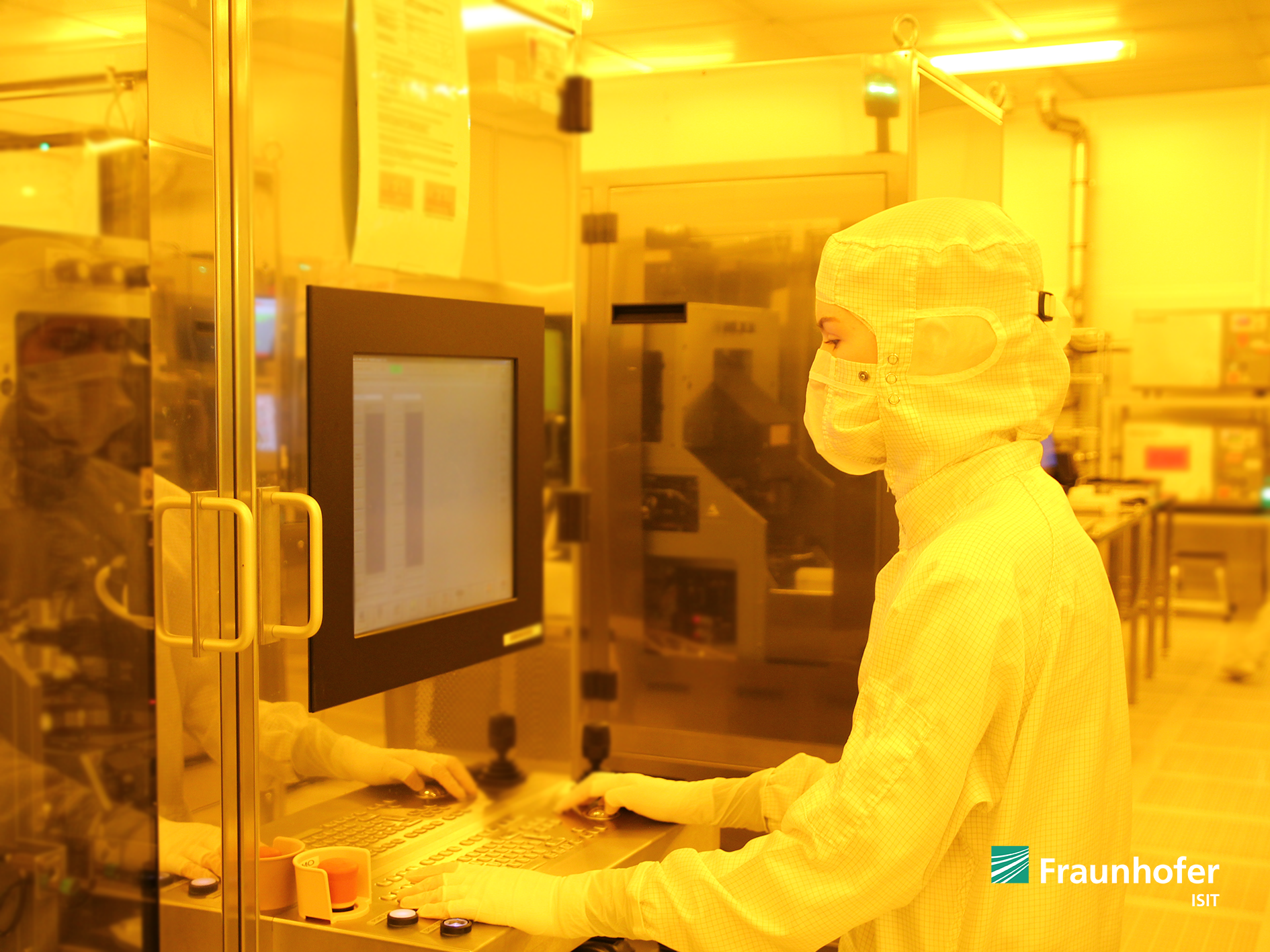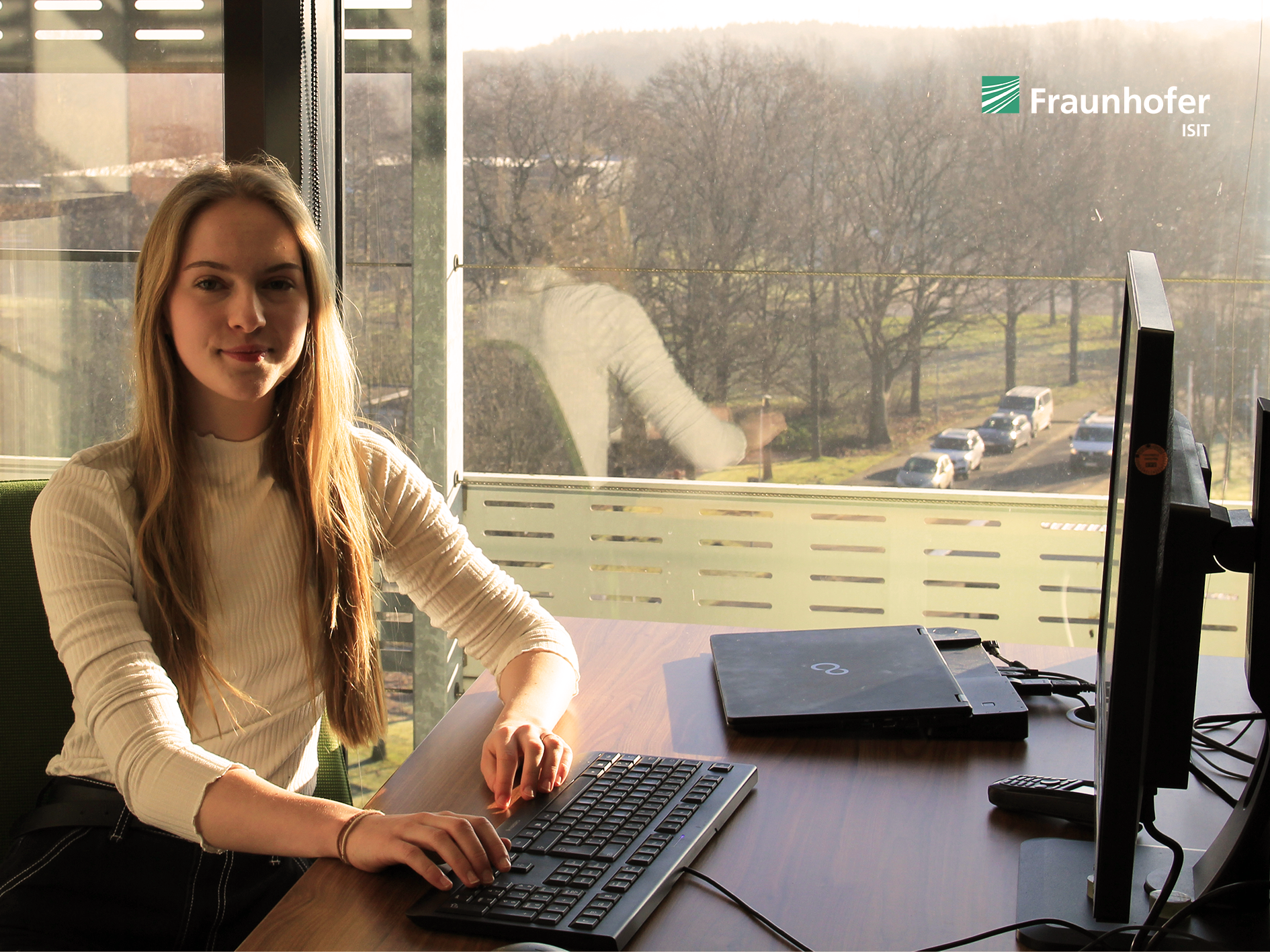International Day of Women and Girls in Science
Would you briefly introduce yourself and your activities at Fraunhofer ISIT?
I'm Sina Wiese, 19 years old and I'm training to be a microtechnologist specializing in microsystems technology in the cleanroom area. I'm learning about the processes involved in manufacturing microsystems, for example.
Why did you decide to train as a microtechnologist?
I was in the physics profile at school. My favorite subjects were always physics, chemistry and math. That's why I knew that I definitely wanted to go into the natural sciences. During my apprenticeship, I have the opportunity to do a lot of practical work and get to know applied research at ISIT.
When and how did you become interested in the natural sciences?
I've actually always been interested in science. As a child, I already had a lot of books on the subject and I used to watch videos of the ISS with my father, for example. Later, I also attended lectures from DESY (Deutsches Elektronen-Synchrotron) in Hamburg and from the Schleswig-Holstein University Society.
The natural sciences are still very male-dominated in some areas. Women often find it more difficult. Were you encouraged or did you receive special support?
There are lots of seminars for school students that you can attend free of charge. For example, at DESY in Hamburg, where I once spent a week at a vacation seminar. Then both my parents are chemical engineers themselves, so I was always encouraged and motivated by both of them to do something in that direction. During my A-levels, I also had great teachers who supported me and us as a class. There is also a Girls' Day where you can get a taste of scientific careers.
Did you have a female role model who influenced your path?
In fact, I didn't really have a role model or anything. I've simply always been interested in science and just do what I enjoy.
Equal rights for men and women is a big issue in society and especially in scientific and technical professions. What experiences have you had in this context?
I think that there are still some social problems, but fortunately I have not yet been confronted with them personally. I hope that many girls and women will continue to be enthusiastic about science in the future and that we can all advance science together as a society.
At ISIT I have found top framework conditions. I felt very welcome and comfortable here. I was very happy about that.
How can we imagine the everyday life of a trainee at Fraunhofer ISIT?
In my apprenticeship, I mainly work in the cleanroom. I have many different tasks there, for example carrying out various processes on different systems or working with a microscope or measuring devices for process control and error analysis. I work in different areas, for example in wet chemistry, where you etch with acids or alkalis, or in metallization, where metal layers are applied.
During my training, I'm always in different areas of the cleanroom for a certain period of time. For example, first six weeks in lithography, then some time in wet chemistry, and so on. I am then taken along and get to know the processes better. In each of the areas, I have people who look after me and show me the processes and work steps. Once I have mastered these, I can also carry them out on my own or work on small projects.
I have a training plan that tells me when I am in which areas.
What is special about your apprenticeship?
Firstly, working in a cleanroom, as this is an unusual and exciting working environment. Then there is the scientific and technical training, with subjects such as electrical engineering, chemistry and semiconductor physics at vocational school. So if you are interested in these areas, the apprenticeship is ideal. It is also a very future-oriented profession, as microchips play a major role in many technologies.
After my apprenticeship, I would definitely like to continue working in the natural sciences and also in the field of microtechnology.
What tips would you give to future trainees in the field of microtechnology and those who want to become one?
I can recommend the apprenticeship, as microtechnology is a super interesting field of work and you can always learn something new. I would also recommend doing an internship if you are interested in the subject.
Is there anything you would like to pass on to young women or girls?
You should always do what you enjoy and if you don't know what direction you want to take professionally, you can do internships or attend seminars, for example. The most important thing is not to be intimidated.
 Fraunhofer Institute for Silicon Technology
Fraunhofer Institute for Silicon Technology
